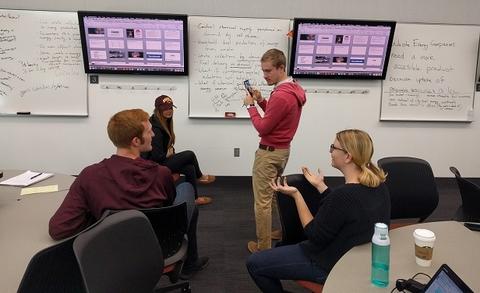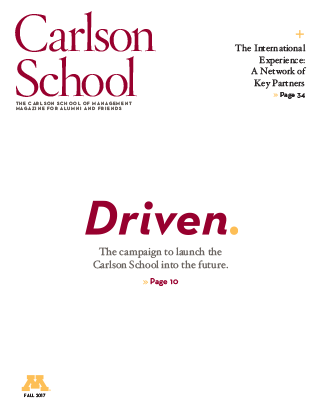
Acara Challenge Winner Hopes to Fuel Sustainable Solutions in Uganda
Tuesday, April 25, 2017
What if there were a way to reduce deforestation, promote sustainable energy, and improve waste management—all through one service?
That’s the idea behind Takadi, a proposal conceived of by a team of University of Minnesota students that includes Carlson School undergraduate Claire Irwin, ’18 BSB. The startup, focused on the East African country of Uganda, was the winner of the international division at March’s Acara Challenge, an Institute on the Environment competition that asks students to dream up ideas to address global social and environmental issues. The Carlson School and the College of Science and Engineering are also partners in the contest.
Takadi emerged from one of the University’s Grand Challenge Curriculum courses, Global Venture Design. The name is a combination of “taka” and “nishati,” the Swahili words for waste and energy, which aptly describes the dual mission of the venture. As Irwin explains, about 90 percent of Ugandans use charcoal as their primary fuel source, which drives deforestation. At the same time, access to trash collection is a problem in Kampala, Uganda’s bustling capital.
The Takadi solution: Partner with Green Bio Energy, a Ugandan company that creates briquettes made from organic waste, and combine delivery of the briquettes with trash collection to offer an affordable solution to both problems.
“By bundling subscription-based briquette delivery with trash collection, which has high social value and demand, we achieved a low enough price point that it is cheaper for our customers to subscribe to Takadi than to stick with charcoal,” says Irwin, who’s majoring in International Business and Finance with a minor in Entrepreneurial Management.
“We want to make clean energy so convenient that it becomes the obvious choice.”
By winning the Acara Challenge, Irwin and her teammates—Margaret Kristian from the College of Food, Agricultural and Natural Resource Sciences and Ben Ihde and Peder Garnaas-Halvorson of the Humphrey School of Public Affairs—have access to $5,000 in funding, plus mentoring from the Acara program’s professional network. The group plans to launch a pilot of Takadi in Kampala this summer.
Irwin says that while she wasn’t as well-versed in sustainable energy solutions as the rest of her team, “as a Carlson student, I was able to contribute to the overall business model and project feasibility.”
“While working on Takadi, I've used skills from marketing, supply chain, finance, and other courses to identify problems and create better solutions,” says Irwin, who will intern at the global consulting firm Protiviti this summer and has designs on either a career in consulting or working with social enterprises and startups.
More Acara Challenge honors
Carlson School students Priyanka Shah, ‘17 BSB (silver, international division), Marah Cuadrado Labey, ‘12 BSB, ’16 MBA (silver, international), Keon Garvin, ’17 BSB (honorable mention, international), Harpreet Sandhawalia, ’18 MBA (bronze, domestic), and Zachary Hofeld, ’18 MBA/JD (bronze, domestic) also earned plaudits for their proposals.

